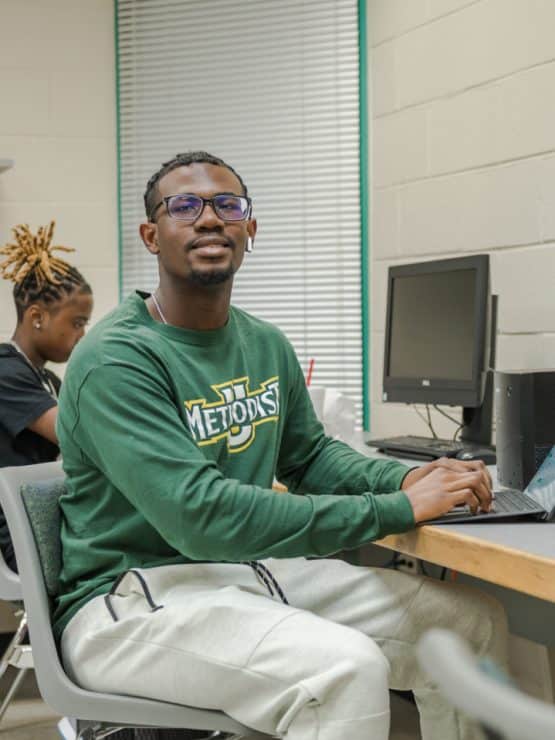
Computer Science
Methodist University’s Computer science program prepares students for one of the fastest growing career paths due to its high demand for those who can work with ever-changing technology. Computer science is the systematic study of computers and of the phenomena of computing. Formal properties are given more emphasis than realizations or applications. A major objective of the discipline is the formulation of a systematic body of knowledge to explain these properties. One of the most important concepts of computer science is the management of complexity. Students must understand how abstraction is used to control complexity. As a method of reasoning, computer science bears a strong similarity to mathematics and depends heavily upon mathematics. Students should note that, although the introductory sequence in the curriculum is programming, computer science involves much more than programming.
Common Career Paths
If you decide to pursue a degree in Computer Science, you can consider a number of career paths including:
- Software Engineer
- Web Developer
- Gaming developer
- System Software Developer
- Quality Assurance Engineer
- IT Security Analyst
- Systems Analyst
- Computer Programmer
- Database Administrator
- Computer Support Specialist
- Network Administrator
- Pursuit of advanced degrees in computer science area
Common Salary Ranges for Graduates
Since there’s a variety of careers that Computer Science graduates go into, it’s difficult to nail down a specific salary. However, the U.S. The Bureau of Labor Statistics reports the average annual salary for software developers in North Carolina in May 2021 to be $117,240 and $82,780 for computer science teachers.
Average Tuition Cost
The average cost for an incoming residential freshman to attend MU is less than $18,000 – similar to the cost of attending one of the big-box public schools, but with the enhanced value of a highly-regarded private school with a 12:1 student-to-faculty ratio.
While tuition varies, depending on a student’s financial aid package, it’s important to know that the average financial award for an incoming residential freshman at MU is more than $34,000.
Financial Aid & Scholarships
More than 97% of MU students receive some form of financial aid, with the University offering more than $24 million annually to students for scholarships. If a student is active military, family of active military, or a veteran, they may also qualify for MU’s military education benefits.
Interested in Methodist University’s Computer Science program?
If you have questions, see the FAQ below or reach out to Dr. Terry House using the contact info at the bottom of the page. If you’re ready to apply today, click the button below!
Frequently Asked Questions
While some industry experts believe an internship is less necessary for a career as a programmer compared to those entering research, all experience is helpful for developing your career in Computer Science.
There’s some key differences between Computer Engineering and Computer Science. For Computer Engineering, you would focus on solving problems and designing hardware and software interfaces. For Computer Science, you would focus mostly on troubleshooting issues on a software level. You can also expect to learn different programming languages, how to work with operating systems, and how to maintain databases.
Computer Labs
There are two computer labs located in D. Keith Allison Hall that house more than 40 fast computer units to support instruction and research. All computers in the labs are on the campus LAN and the internet. They are upgraded regularly and installed with up-to-date Software/applications, include not limit to popular IDEs, project management tools, MIPS simulators, Microsoft Office suite, Internet Browsers and tools, and Maple mathematical software.
The Department of Computer Science has one research lab reserved for CSC and CIT majors.
Contact
Terry C. House, Ph.D.

